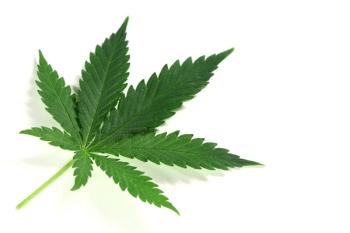
New Cannabis Study Shows Promising Results for Dogs Suffering From DLE
Dogs suffering from DLE, an autoimmune disorder, have found some relief with cannabis, according to a new study.
A recent study published in Frontiers in Veterinary Science (1) has unveiled another potential health benefit received from the cannabis plant. The study explored whether cannabis could be a treatment option for dogs suffering from discoid lupus erythematosus (DLE), a common autoimmune disorder found in dogs.
Currently, veterinary treatments for the autoimmune disorder are various medications which include the use of corticosteroids (1). Not all canines react positively to the current medications on the market or are able to use them. The study, conducted by researchers at the Federal University of Santa Catarina (UFSC) located in Florianópolis, Santa Catarina, Brazil, obtained its research with a two-year old dog who was suffering from DLE and related liver issues. The dog’s vet chose to explore cannabis use to treat the illness (1). Symptoms being experienced were elevated liver enzymes, lesions, and hair loss. The treatment plan performed was giving the dog one drop each day of a 2:1 cannabidiol:tetrahydrocannabinol (CBD:THC) ratio (1). As time went on, the dosage was increased until the desirable quantity was reached.
“Within a few weeks of starting [cannabinoid therapy], the dog showed significant improvement in skin lesions and in liver enzyme levels,” researchers discussed in the study (1). “After 1 year, the dog remains clinically stable on a low dose of full-spectrum CBD-rich oil. No evidence of DLE recurrence was observed.”
Within receiving the first dose, the owner reported behavioral improvements in their pet.
“Cannabis derivatives, beyond their pain-relieving prowess, are emerging as potential knights in shining armor against inflammation and immune system overwork in the veterinary world,” researchers explained (1). “Unlike traditional drugs, these compounds dance with the body’s own endocannabinoid system (ECS), a master conductor of cellular harmony, homeostasis and diverse functions.”
Veriheal (1), disclosed that CBD is a safe option to be used long-term. One of the current treatments, corticosteroids, is only able to be used short-term. By being able to utilize the cannabis plant as a long-term option, it’ll help dogs suffering from DLE to have a safer treatment to choose from.
“While the song of cannabis therapy for DLE in dogs holds immense promise, we must continue listening closely, gathering more evidence, and refining the tune,” the researchers mentioned in the study (1). “This case report adds its verse to the growing chorus, paving the way for future research and potentially offering a new rhythm of hope and a haven from the long-term reign of corticosteroids for dogs battling this challenging disease.”
Reference
- Mullins, E. Case Study Finds That Cannabis Could Help Dogs With Skin Conditions
https://www.veriheal.com/blog/case-study-finds-that-cannabis-could-help-dogs-with-skin-conditions/ (accessed Feb 27, 2024).
Newsletter
Unlock the latest breakthroughs in cannabis science—subscribe now to get expert insights, research, and industry updates delivered to your inbox.




